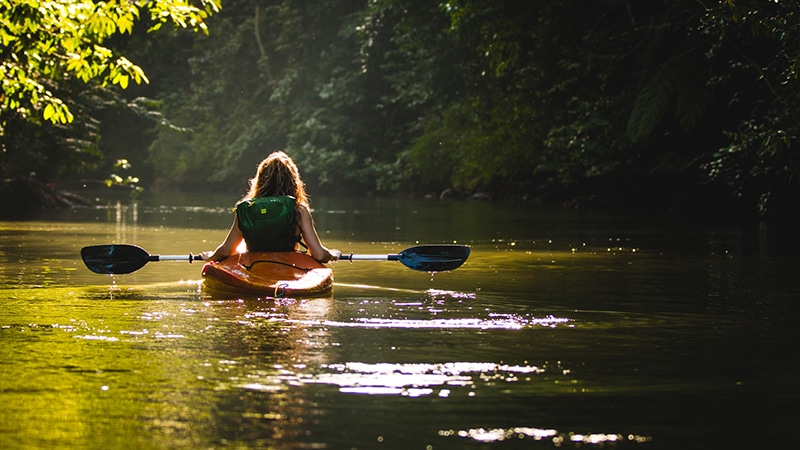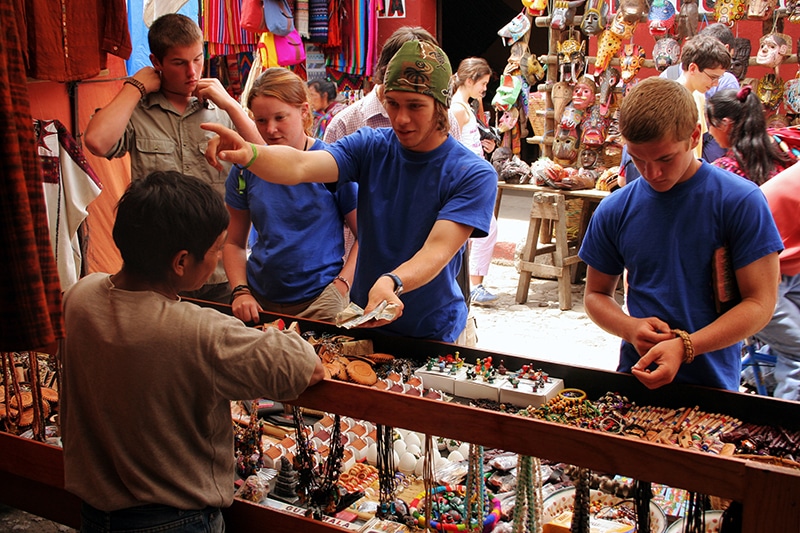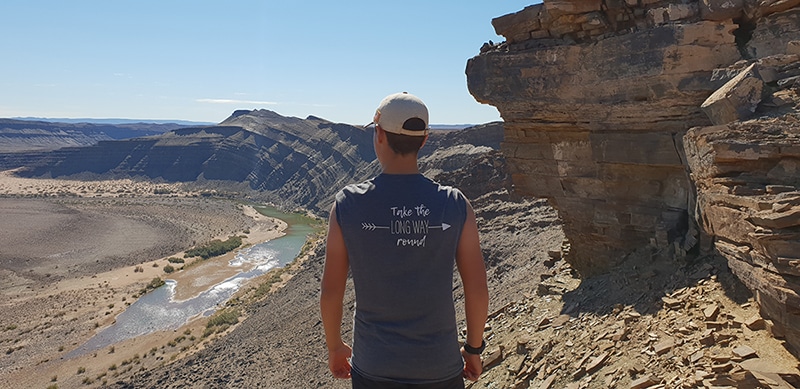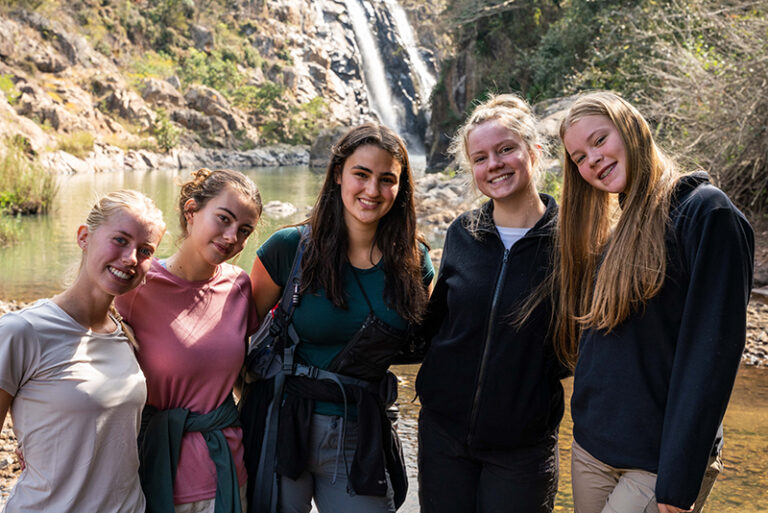During our travels, we’re like guests, so let’s have a positive impact. Sustainable travel means being mindful of the places we visit. It helps protect cultures and nature, and benefits local communities, making our trips better for everyone.
Here are ten simple ways to make a positive impact on your next trip.
- Stay in environmentally-friendly accommodation
Staying in a hotel will increase your carbon footprint as they are typically more energy intensive to run (heated pools require lots of energy, for example). Choosing an eco-lodge, camping, or homestay will not only reduce your footprint, but it will also give you a more authentic experience of your destination and immerse you in the local flora and fauna. Plus, many campsites and eco-lodges are run by small independent businesses, meaning you will be boosting the local economy.

- Choose a travel operator that prioritises sustainability and environmental protection
Before choosing a student travel operator, research the work they do and find out whether they prioritise environmental protection and sustainability. Don’t be afraid to ask them questions on their environmental regulations and how they may mitigate their impact, so you can rest assured that minimal harm is being done to the planet throughout your travels.
- Pick ethical volunteer tourism
If you want to do some volunteering and you are going through a travel operator, ensure they have partnerships with community and conservation projects that have been scoped out and meet ethical requirements as some do not provide decent working environments. If you want to help local communities, do this through initiatives and projects rather than giving money and gifts to begging children to protect them from exploitation.

- Follow the three Rs: reduce, reuse, recycle
This is a great rule to follow – generally, reduce your consumption of new items. If you need a new item for your trip, why not try some charity shops before buying it brand new? Or ask your family or friends if they have what you need. Opting for second-hand clothes reduces your carbon footprint because it’s energy and resource intensive to create new clothes. Similarly, if you have an item that you no longer need, and is recyclable, do that instead of throwing it in the general waste bin so it can be turned into something else!
- Get on your bike!
When getting around on your trip, be it to a shop or tourist attraction, ask yourself: is the distance doable by foot? Or by bicycle? Train? If it is, opt for those options over a taxi or private car – it will save emissions and you’ll see more of the sites for much cheaper! The most carbon-intensive part about driving a vehicle is starting and stopping the car, so for short journeys, it’s hardly worth emitting all that carbon into the atmosphere if it’s doable by foot or bike.

- Prevent pollution
Being a responsible traveler means that you always have the environment at the forefront of your mind. Make sure you never leave litter. If there is no bin nearby, put your waste in your pocket or bag and throw it away when you find one. If you see any litter when walking around parks or streets, pick it up (provided it’s safe) and bring it to the nearest bin. Waste ending up in nature can affect natural habitats and it can also find its way into waterways, which will pollute water and affect marine life.
- Avoid single-use plastic
Plastic has detrimental effects on the planet and can affect many different land and water ecosystems. Avoid single-use plastic where possible. Bring a reusable water bottle on your trip and reusable pouches to put food and snacks in so you don’t need to bin any packaging in your destination.

- Respect communities
Being a responsible traveler means being respectful and mindful of the communities and destinations you are visiting. Do some research on the destination you are visiting, and find out what customs and traditions there are and the type of lifestyles and environments you will be in. Not only will this allow you to be more respectful, but it will allow for a more culturally immersive experience.
- Join lower-impact activities
When organising a trip, opt for activities that are less harmful to the environment and animals. Local activities, such as traditional dance classes or arts and crafts, provide an authentic experience and leave a positive impact on the community whilst ensuring minimal harm to the environment. A great way to explore nature in your destination is by incorporating outdoor activities like hiking or kayaking. To experience the local wildlife, avoid activities like elephant riding and go for options like a guided walking tour through a jungle or forest to see them in their natural habitat.

- Choose local
Whether you’re looking for gifts to bring home or snacks throughout your stay, look for smaller vendors or independent shops so that you are directly benefiting the local economy rather than opting for larger businesses, where it is unclear whether local communities benefit. Look for a travel operator that employs local guides to ensure your trip sustainably contributes toward many local livelihoods. Having a local guide can also give you a better experience as they know the area inside out and can take you off the beaten track.

Written by Alessia Tomasi




